Under South African law, when a person loses mental capacity, they lose the right to a Power of Attorney, which forces most families down a laborious and expensive road of appointing a curator or an administrator. Our advice is to rather set up a vested trust. Here’s why.
By Savannah Dawson, Junior Consultant, Sentinel International
In basic terms, when you sign a Power of Attorney (PoA), you give legal right to someone else to act on your behalf. In South Africa, however, a PoA is based on the law of agency, and it is only valid if the principal (the person giving the PoA) has the mental ability to properly consider the act in question. So, if that person loses his or her mental capacity due to an illness like dementia, their PoA loses its authority.
This results in a dilemma for many families, since the person suffering from dementia is put in a very vulnerable position: They are no longer able to make executive decisions themselves, and they have no ability to grant a trusted family member the authority to make decisions on their behalf either.
Time and money
Normally, when a person is declared as mentally incapacitated and their PoA becomes void, an outside authority is appointed to assist that person with their financial affairs. There are two options in this regard: appointing a curator or appointing an administrator.
Appointing a curator is expensive and time-consuming, as it requires various processes to be followed, including an application to the High Court. Medical affidavits are required, and an affidavit from a close friend or family member who can testify to the mental state of the person concerned. In total, such an application can easily cost R40 000 or more, not including the fees that the curator is entitled to from the estate itself for their work in managing the affairs (which could amount to at least R65 000 annually).
A less expensive process, which is recommended for estates smaller than R250 000, is to appoint an administrator. This application is done via the Master of the High Court. Although it costs less than a curatorship application, it can be just as time-consuming.
In both cases, during the period prior to the appointment of an administrator or a curator, the person suffering from dementia is left without protection.
The vested trust alternative
Luckily, there is another solution – creating a vested trust. With this kind of trust, the founder transfers ownership of assets to his or her beneficiaries, but administration and control of the assets is given nominated trustees. If the beneficiaries and trustees are chosen carefully, you can basically create a de facto curatorship without having to hand over control of your estate to a third party.
For example, one of our clients was worried about his wife, who had early-stage dementia. We advised him to set up a vested trust where the beneficiaries were he and his wife, and the trustees were family members they could rely on.
Setting up a vested trust has some costs: The trust deed needs to be drafted, which could cost about R10 000, and there is a nominal fee of R250 due to the Master’s Office for registration and to procure the Letter of Authority. Annually, there are administration fees involved in running the trust, as well as reasonable remuneration for trustees. Costs do vary but even the most complex structure usually doesn’t have annual fees exceeding R50 000.
Final word
Setting up a vested trust is the safest, most personal and often the most cost-effective way to deal with the financial affairs of a person who has lost mental capacity to make their own decisions. When someone is suffering from a disease like dementia, it places enormous stress on a family – the last thing you want to worry about is money.
Plan ahead and ask a professional advisor for help. There are a number of issues to consider when setting up a vested trust – mostly regarding tax – but none are insurmountable. A professional will be able to tailor the trust to suit you and your family’s needs, assist with the process of establishing the trust, and make it as tax efficient as possible for ultimate long-term benefit.
If you would like more information or a quote, please don’t hesitate to contact us.
www.sentinelinternational.co.za

